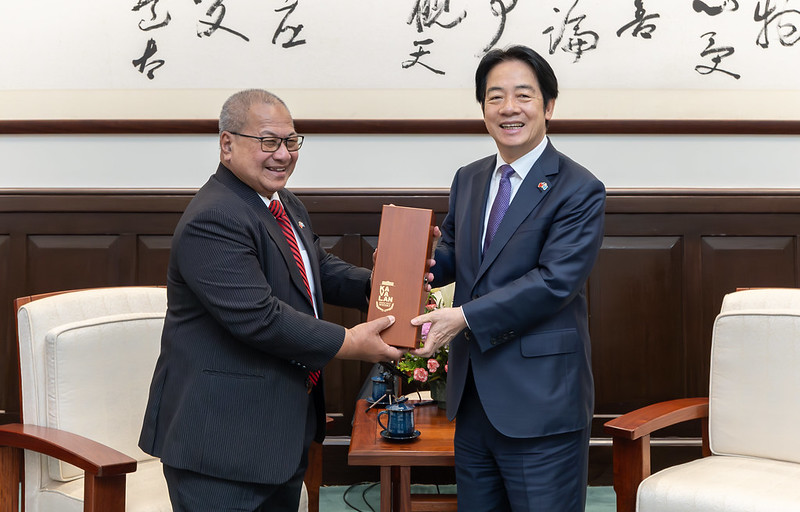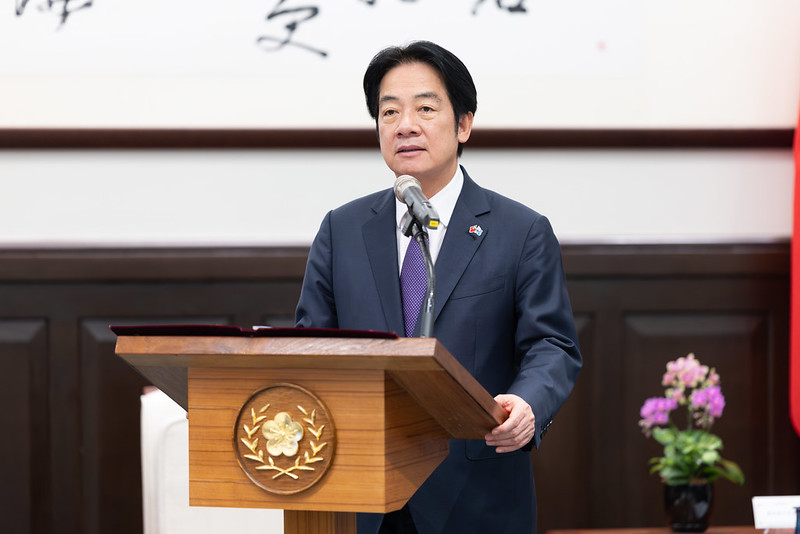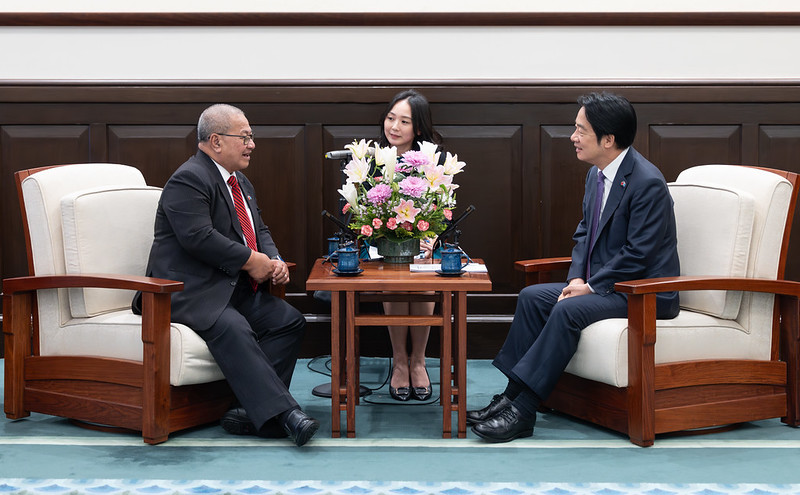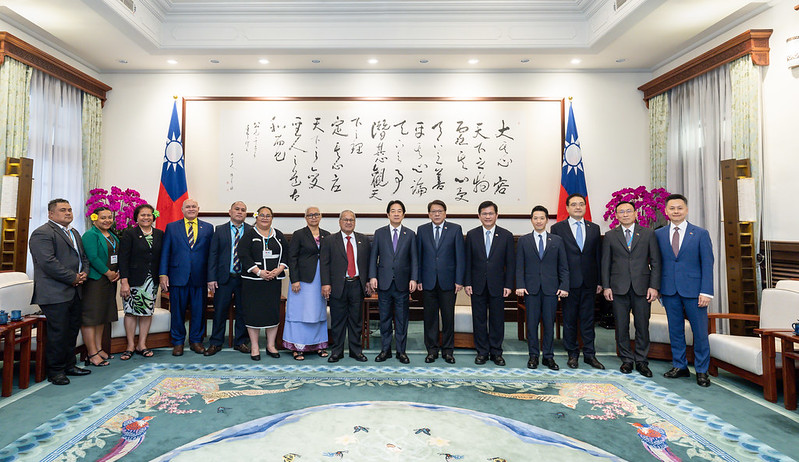News & activities
 News releases
News releases
On the afternoon of September 2, President Lai Ching-te met with a delegation led by Speaker of the Parliament of Tuvalu Iakoba Taeia Italeli and his wife. In remarks, President Lai thanked Tuvalu for long supporting Taiwan’s international participation and speaking up for Taiwan at global venues. President Lai expressed hope that Taiwan and Tuvalu will continue to closely cooperate in areas such as climate change and talent development, and work together to advance stability and prosperous development in the Asia-Pacific region.
A translation of President Lai’s remarks follows:
I welcome Speaker Italeli and Member of Parliament Seve Paeniu, who are leading this delegation to Taiwan. I would also like to thank Speaker Italeli and the Parliament of Tuvalu for their warm welcome during my visit to Tuvalu last year. On this occasion, Speaker Italeli and the delegation have come to attend the General Assembly of the Asian-Pacific Parliamentarians’ Union. This not only demonstrates support for Taiwan, but also attests once again to our nations’ determination to jointly advance stability and prosperous development in the Asia-Pacific region.
As I emphasized in my remarks at the assembly’s opening ceremony, Taiwan will continue to demonstrate determination to safeguard regional peace. We will also boost cooperation with diplomatic allies and other nations in Asia to promote mutual prosperity and success throughout the region. Looking ahead, Taiwan will continue to work closely with Tuvalu across all domains to promote prosperous development in both nations. We will also jointly tackle such global challenges as climate change and expanding authoritarianism.
One of Speaker Italeli’s areas of focus in Tuvalu is talent development. Through scholarship programs, healthcare and vocational training workshops, and the launch of the Taiwan Global Pathfinders Initiative – Diplomatic Allies Inbound Track Program this year, Taiwan will continue to invite even more young Tuvaluans to learn and conduct exchanges in Taiwan. In July, here at the Presidential Office, I met with some outstanding young people from Tuvalu participating in exchanges. I believe that through cooperative projects and visits between our two countries, the diplomatic alliance between Taiwan and Tuvalu will further deepen, underscoring our common belief in the universal values of democracy, freedom, and respect for human rights.
On behalf of the people of Taiwan, I would like to take this opportunity to sincerely thank Tuvalu for long speaking up for Taiwan and supporting our international participation at global venues, including the United Nations General Assembly and the World Health Assembly. We will always remember these acts of friendship. We look forward to Taiwan and Tuvalu continuing to support each other, working with even more democratic partners to safeguard peace, stability, and prosperity in the Pacific.
Speaker Italeli then delivered remarks, first conveying greetings and stating that Tuvalu is standing on the frontlines of climate change. Tuvalu is small in land, he said, but vast in its stewardship of the ocean, while the people of Tuvalu are rich in heritage, culture, and resilience. The speaker went on to say that despite this, the daily reality they face is stark, as rising seas threaten homes, saltwater intrusion contaminates crops and water, and storms of increasing intensity erode the land. For Tuvalu, Speaker Italeli said, climate change is not a theory; it is a lived struggle for survival, dignity, and the right to remain in their ancestral homeland.
Speaker Italeli noted that in this existential struggle, Taiwan has proven itself a true and steadfast partner. He expressed appreciation for Taiwan’s assistance in reclaiming land in Tuvalu, supporting their agriculture sector, and enhancing connectivity through contributions to the Vaka Cable. He also expressed gratitude for the rollout of 4G services to Tuvalu’s outer islands, which has strengthened education, and for Taiwan’s health assistance. Speaker Italeli said that looking ahead, they also hope that Taiwan will continue supporting their renewable energy transition, enabling Tuvalu to reach its goal of 100 percent renewable energy by 2030. He then expressed gratitude for Taiwan’s commitment to supporting the construction of Tuvalu’s new parliament, which he stated is the living foundation of their democracy, where the voices of the people are heard, laws are made, and the destiny of the nation is shaped.
Speaker Italeli then reaffirmed Tuvalu’s support for Taiwan in international fora, saying that Tuvalu knows the value of solidarity. In every gathering of nations, he said, Tuvalu will continue to stand proudly with Taiwan, just as Taiwan has stood with Tuvalu. Speaker Italeli stated that Tuvalu may be small, but their friendship with Taiwan is vast. They are bound not by size or distance, he said, but by values and spirit, and our shared belief in democracy, dignity, and resilience. Speaker Italeli said that the support of Taiwan for Tuvalu in health, agriculture, ICT, renewable energy, education, trade, and governance will not only shape this generation, but inspire generations yet to come.
The delegation was accompanied to the Presidential Office by Tuvalu Ambassador Lily Tangisia Faavae.












